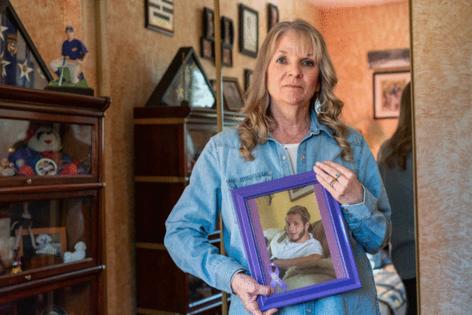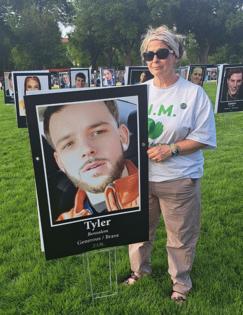Swap funds or add services? Use of opioid settlement cash sparks strong disagreements
Published in News & Features
State and local governments are receiving billions of dollars in opioid settlements to address the drug crisis that has ravaged America for decades. But instead of spending the money on new addiction treatment and prevention services they couldn’t afford before, some jurisdictions are using it to replace existing funding and stretch tight budgets.
Scott County, Indiana, for example, has spent more than $250,000 of opioid settlement dollars on salaries for its health director and emergency medical services staff. The money usually budgeted for those salaries was freed to buy an ambulance and create a financial cushion for the health department.
In Blair County, Pennsylvania, about $320,000 went to a drug court the county has been operating with other sources of money for more than two decades.
And in New York, some lawmakers and treatment advocates say the governor’s proposed budget substitutes millions of opioid settlement dollars for a portion of the state addiction agency’s normal funding.
The national opioid settlements don’t prohibit the use of money for initiatives already supported by other means. But families affected by addiction, recovery advocates, and legal and public health experts say doing so squanders a rare opportunity to direct additional resources toward saving lives.
“To think that replacing what you’re already spending with settlement funds is going to make things better — it’s not,” said Robert Kent, former general counsel for the Office of National Drug Control Policy. “Certainly, the spirit of the settlements wasn’t to keep doing what you’re doing. It was to do more.”
Settlement money is a new funding stream, separate from tax dollars. It comes from more than a dozen companies that were accused of aggressively marketing and distributing prescription painkillers. States are required to spend at least 85% of the funds on addressing the opioid crisis. Now, with illicit fentanyl flooding the drug market and killing tens of thousands of Americans annually, the need for treatment and social services is more urgent.
Thirteen states and Washington, D.C., have restricted the practice of substituting opioid settlement funds for existing dollars, according to state guides created by OpioidSettlementTracker.com and the public health organization Vital Strategies. A national set of principles created by Johns Hopkins University also advises against the practice, known as supplantation.
Paying Staff Salaries
Scott County, Indiana — a small, rural place known nationally as the site of an HIV outbreak in 2015 sparked by intravenous drug use — received more than $570,000 in opioid settlement funds in 2022.
...continued
©2024 KFF Health News. Distributed by Tribune Content Agency, LLC.
















Comments